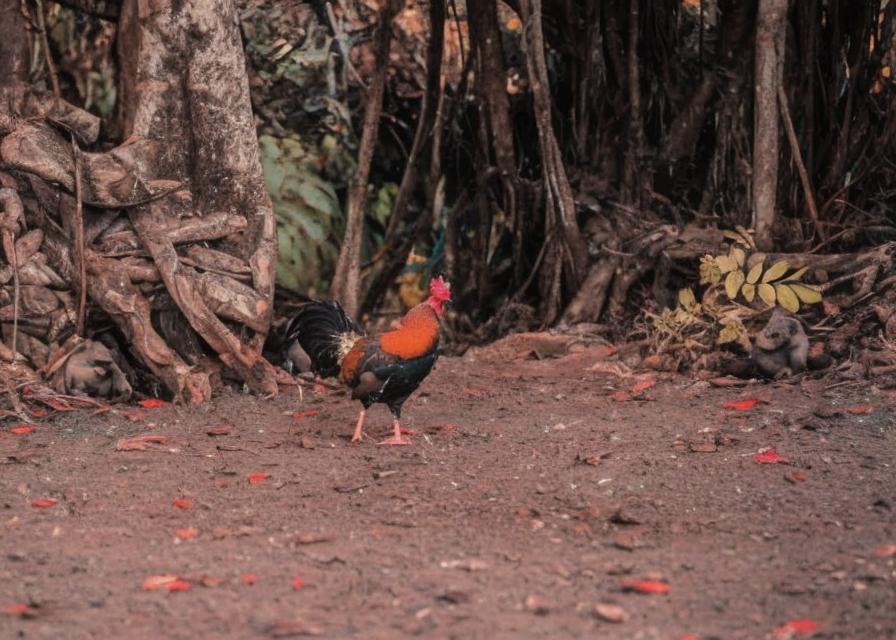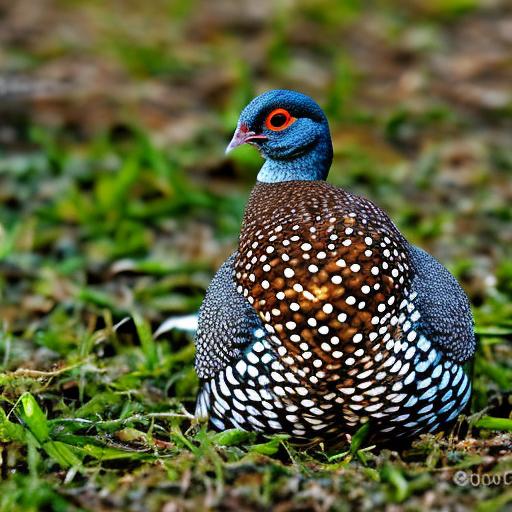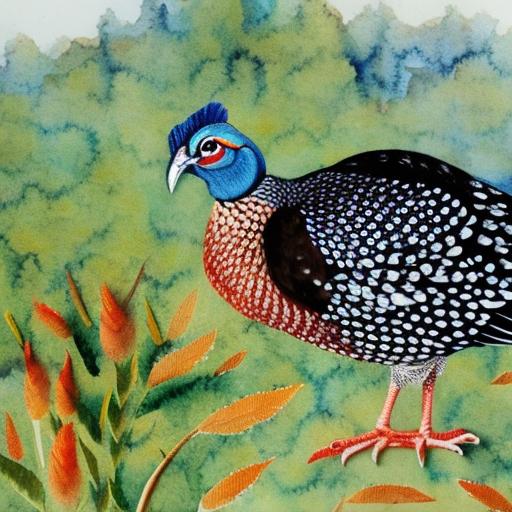Guinea fowl breeding in Zimbabwe has become an increasingly popular venture for many farmers due to the high demand for guinea fowl meat and eggs. Guinea fowl are known for their delicious, lean meat and their ability to control pests such as ticks, flies, and other insects, making them a valuable addition to any farm. The climate and terrain in Zimbabwe are well-suited for guinea fowl breeding, making it a profitable and sustainable business for many farmers.
Guinea fowl are hardy birds that are well adapted to the Zimbabwean climate, making them relatively easy to care for. They are also known for their low maintenance requirements, making them an attractive option for farmers looking to diversify their livestock. With the right breeding stock, proper housing and feeding, and good management practices, guinea fowl breeding can be a lucrative business in Zimbabwe.
Key Takeaways
- Guinea fowl breeding is a popular practice in Zimbabwe due to the high demand for their meat and eggs.
- When selecting breeding stock, it is important to choose healthy, disease-free birds with good reproductive traits.
- Proper housing and feeding are essential for the health and productivity of guinea fowl, including providing adequate space and a balanced diet.
- The breeding and incubation process involves carefully monitoring the eggs and providing the right conditions for hatching.
- Caring for guinea fowl chicks requires warmth, protection from predators, and a balanced diet to ensure their healthy growth.
- Disease prevention and health management are crucial for maintaining a successful guinea fowl breeding operation.
- Marketing and selling guinea fowl products can be profitable, with options including selling live birds, meat, eggs, and feathers.
Selecting the Right Breeding Stock
Selecting the right breeding stock is crucial for successful guinea fowl breeding. When choosing breeding stock, it is important to select birds that are healthy, strong, and have good genetic traits. Look for birds that are active, alert, and have a good body conformation. It is also important to select birds that come from a reputable breeder or source to ensure that they are free from diseases and genetic defects.
When selecting breeding stock, consider the purpose of your breeding program. If you are breeding for meat production, look for birds that have good body weight and conformation. If you are breeding for egg production, look for birds that have a good laying history and strong fertility. It is also important to consider the temperament of the birds, as guinea fowl can be quite aggressive and territorial. Select birds that are not overly aggressive and can coexist peacefully in a breeding environment.
Housing and Feeding Requirements for Guinea Fowl
Proper housing and feeding are essential for the health and productivity of guinea fowl. Guinea fowl require a secure and spacious housing area to roost at night and lay their eggs. The housing should provide protection from predators and the elements, with adequate ventilation and natural light. It is important to provide nesting boxes or areas for the guinea fowl to lay their eggs, as they can be quite particular about where they lay.
Guinea fowl also require a balanced diet to maintain their health and productivity. They are omnivorous birds that require a diet high in protein, such as insects, seeds, grains, and greens. It is important to provide access to a good quality commercial poultry feed that is specifically formulated for guinea fowl. Additionally, providing access to fresh water at all times is crucial for the health and well-being of guinea fowl.
Breeding and Incubation Process
Breeding guinea fowl involves allowing the birds to naturally mate or using artificial insemination to fertilize the eggs. It is important to provide a suitable environment for breeding, with enough space for the birds to mate and lay their eggs. Guinea fowl are known for their strong mating instincts, so providing a natural environment with plenty of space and privacy is essential for successful breeding.
Once the eggs are laid, they can be collected and placed in an incubator for hatching. Guinea fowl eggs require specific conditions for successful incubation, including a consistent temperature of around 99.5 degrees Fahrenheit and high humidity levels. It is important to regularly monitor the temperature and humidity levels in the incubator to ensure successful hatching.
After approximately 28 days of incubation, the guinea fowl chicks will begin to hatch. It is important to provide a warm and safe environment for the chicks to grow and develop. Once hatched, the chicks should be provided with a brooder area that is warm, dry, and draft-free. It is important to provide access to fresh water and a high-quality chick starter feed to ensure the healthy growth of the chicks.
Caring for Guinea Fowl Chicks
Caring for guinea fowl chicks requires attention to detail and proper management practices. It is important to provide a warm and secure brooder area for the chicks to grow and develop. The brooder area should be kept clean and dry, with access to fresh water and a high-quality chick starter feed. It is also important to monitor the temperature in the brooder area to ensure that it remains warm enough for the chicks.
Guinea fowl chicks are known for their high energy levels and curious nature, so it is important to provide plenty of space for them to move around and explore. It is also important to handle the chicks gently and regularly to help them become accustomed to human interaction. This will help to reduce stress and make them easier to manage as they grow older.
As the chicks grow, it is important to gradually introduce them to the outdoor environment. This will help them acclimate to their surroundings and develop their natural instincts for foraging and roosting. Providing access to a safe outdoor area with plenty of space will help the chicks develop into healthy and productive adult guinea fowl.
Disease Prevention and Health Management

Disease prevention and health management are crucial aspects of guinea fowl breeding. Guinea fowl are generally hardy birds, but they can be susceptible to certain diseases and parasites if proper management practices are not followed. It is important to regularly monitor the health of the birds and provide access to clean water, nutritious feed, and a clean living environment.
Regular vaccinations and deworming are important for preventing common diseases and parasites in guinea fowl. It is also important to practice good biosecurity measures to prevent the introduction of diseases onto the farm. This includes limiting contact with wild birds and other poultry species, as well as regularly disinfecting equipment and housing areas.
It is also important to provide regular health checks for the guinea fowl by a qualified veterinarian. This will help to identify any potential health issues early on and ensure that the birds receive prompt treatment if needed. By practicing good disease prevention and health management, farmers can ensure the long-term health and productivity of their guinea fowl flock.
Marketing and Selling Guinea Fowl Products
Marketing and selling guinea fowl products can be a profitable venture for farmers in Zimbabwe. Guinea fowl meat is known for its delicious flavor and lean texture, making it a popular choice among consumers. Additionally, guinea fowl eggs are also in high demand due to their rich flavor and nutritional value.
When marketing guinea fowl products, it is important to highlight the unique qualities of guinea fowl meat and eggs. This includes promoting their natural pest control abilities, lean meat, and rich flavor. Farmers can sell their products directly to consumers through farmers’ markets, local stores, or online platforms. Additionally, forming partnerships with restaurants or specialty food stores can help farmers reach a wider customer base.
It is also important to consider value-added products such as guinea fowl sausages, smoked meats, or pickled eggs. These products can add value to the guinea fowl products and attract a wider range of customers. By effectively marketing their products, farmers can capitalize on the high demand for guinea fowl meat and eggs in Zimbabwe’s market.
In conclusion, guinea fowl breeding in Zimbabwe offers a profitable opportunity for farmers looking to diversify their livestock ventures. With proper breeding stock selection, housing and feeding requirements, breeding and incubation processes, chick care, disease prevention, health management practices, as well as effective marketing strategies, farmers can successfully raise healthy guinea fowl flock while meeting the high demand for guinea fowl products in Zimbabwe’s market.
If you’re interested in learning more about poultry breeding, you may also want to check out an article on the mating season for turkeys on PoultryWizard. Understanding the mating behaviors of turkeys can provide valuable insights for those involved in guinea fowl breeding in Zimbabwe. You can find the article here.
FAQs
What is guinea fowl breeding?
Guinea fowl breeding refers to the process of raising guinea fowl for the purpose of producing meat, eggs, or for pest control. It involves providing proper housing, nutrition, and care for the birds to ensure their health and productivity.
Why breed guinea fowl in Zimbabwe?
Guinea fowl are popular in Zimbabwe for their meat, eggs, and ability to control pests such as ticks and insects. They are also well-suited to the climate and environment of Zimbabwe, making them a viable option for small-scale farmers.
What are the benefits of guinea fowl breeding in Zimbabwe?
Breeding guinea fowl in Zimbabwe can provide a source of income through the sale of meat and eggs. Additionally, guinea fowl are known for their pest control abilities, which can benefit agricultural operations by reducing the need for chemical pesticides.
What are the challenges of guinea fowl breeding in Zimbabwe?
Challenges of guinea fowl breeding in Zimbabwe may include predation, disease, and proper management of the birds. Additionally, marketing and distribution of guinea fowl products can be a challenge for small-scale farmers.
What are the key considerations for breeding guinea fowl in Zimbabwe?
Key considerations for breeding guinea fowl in Zimbabwe include providing proper housing, nutrition, and healthcare for the birds. It is also important to consider market demand and potential challenges such as predation and disease management.
Meet Walter, the feathered-friend fanatic of Florida! Nestled in the sunshine state, Walter struts through life with his feathered companions, clucking his way to happiness. With a coop that’s fancier than a five-star hotel, he’s the Don Juan of the chicken world. When he’s not teaching his hens to do the cha-cha, you’ll find him in a heated debate with his prized rooster, Sir Clucks-a-Lot. Walter’s poultry passion is no yolk; he’s the sunny-side-up guy you never knew you needed in your flock of friends!







